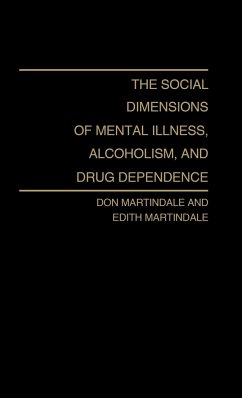
Dimensions of State Mental Health Policy
Versandkostenfrei!
Versandfertig in 1-2 Wochen
87,99 €
inkl. MwSt.

PAYBACK Punkte
44 °P sammeln!
This volume introduces students to the emerging field of state mental health policy, its history, current policies, organizational models and required programming knowledge. Focusing on current issues and trends, it also provides administrative and policy practitioners with a previously unavailable source of new program designs and initiatives. Five chapters on program development identify key principles of programming and describe model programs in primary prevention, clinical treatment, and psychiatric rehabilitation. Contributors include leading scholars and practitioners, several having se...
This volume introduces students to the emerging field of state mental health policy, its history, current policies, organizational models and required programming knowledge. Focusing on current issues and trends, it also provides administrative and policy practitioners with a previously unavailable source of new program designs and initiatives. Five chapters on program development identify key principles of programming and describe model programs in primary prevention, clinical treatment, and psychiatric rehabilitation. Contributors include leading scholars and practitioners, several having served as state commissioners of mental health. This is the first book written specifically on state mental health policy. Its collection of essays together with the editors' introduction and conclusion will provide direction for future inquiry and policy development. State mental health has become a rich source of policy, program, and practice experimentation. Heretofore these efforts have been insufficiently evaluated. The result is duplication of efforts and repetition of errors. This volume introduces its readers to state mental health policy as an emerging specialty. The introduction identifies pivotal issues explored in this collection and then presents an analytical framework and methodology. The initial section examines the historical backdrop and provides a detailed analysis of legal issues. The second section covers current policies and trends. The third, Mental Health Program Models, looks into the packaging of various direct and indirect practice modalities. It then delves into major program options for achieving the ends of primary, secondary, and tertiary prevention. Examples of state-of-the-art public programs are also presented. The final section considers the problems of financially and administratively supporting these policies and programs. A summary chapter reviews conclusions and presents a range of recommendations directed primarily toward administrative integration and fiscal responsiveness.














